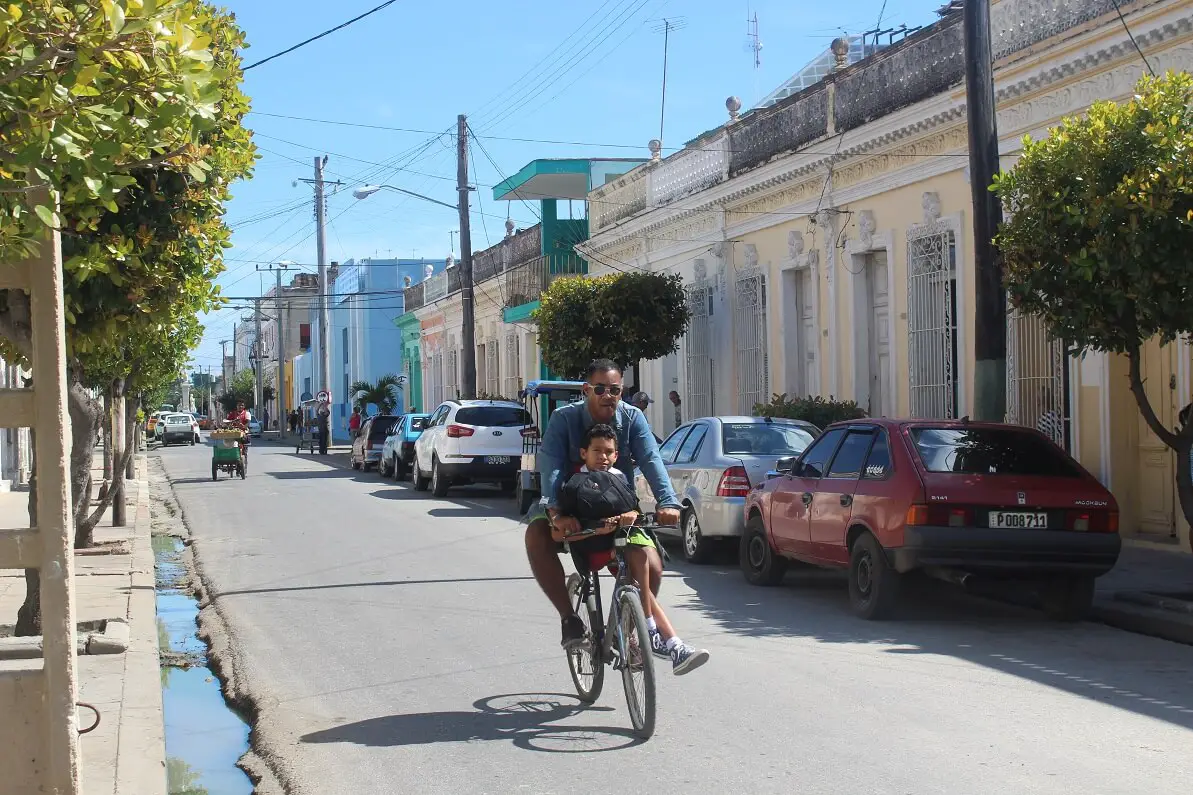
Before going to Cuba, we’ve repeatedly heard how poor Cuba was and the marks that the embargo has left over the country. But what does this poorness really mean and how does it reflect over the lives of its citizens? Are the majority of Cubans miserable poor? How is the economy affected by the number of tourists it gets? You can’t understand this from books and television. The poorness of Cuba is weird. In no way will I pretend to be an expert, this is merely a collection of reflections, facts and experiences.
What you find out before going to Cuba
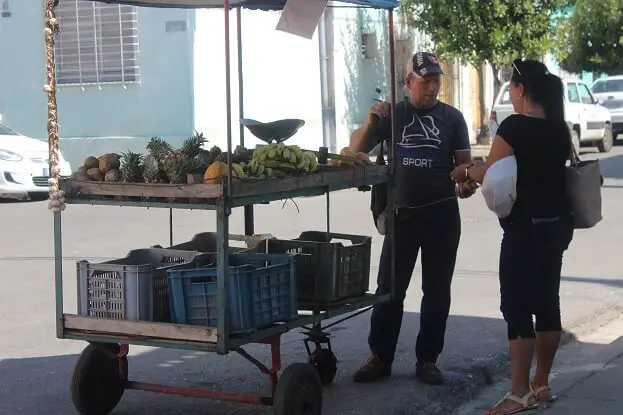
Fidel’s legacy was clean water and electricity for all, free education and healthcare (with equipment 30-40 years old), subsidized housing, cheap public transport, food rations and the lowest rates of violent crime in the Americas. 90% of Cubans own their homes and utilities cost them a few dollars a month. The only Cubans paying taxes are those running small businesses. Prices for basic needs are kept low and even those who rent don’t pay more than 4% of their income. Due to the healthcare system, the infant mortality rate is extremely low and life expectancy is high. Malnutrition at children is almost unknown and literacy rates are enviably high. Of course, this limits the money available for the government and the people.
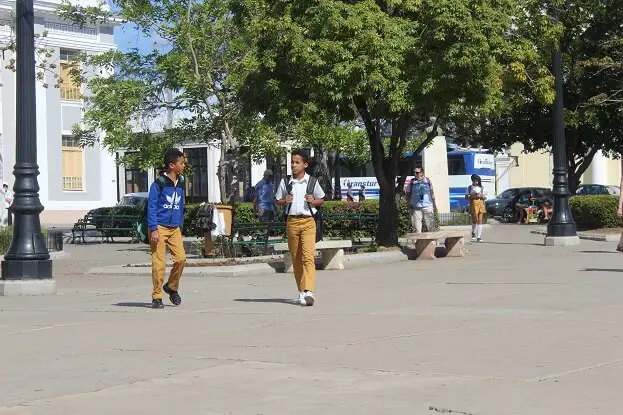
Cuba struggles to provide housing, transportation and other necessities. The embargo made the availability of products scarce and prices are high for consumer goods, considered luxuries (even clothes, mosquito repellent and appliances). Variety is low and even staple products are often hard to get. People don’t discard things that can still be repaired or used for parts and are ingenious in their ability to make things work. The houses are not well-maintained and the infrastructure is generally poor. Many doctors are exported to treat others in Venezuela in exchange for oil. The average take-home pay for state employees is 20$ per month, which does not allow a lot of material possessions. This may seem insanely low, but technically at least almost everything is paid for.
The new middle class of Cuba
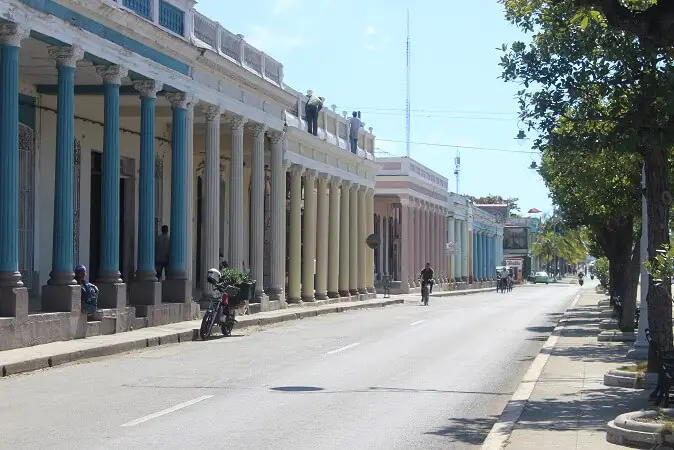
There are some pretty rich people, that have always been like that and nobody really knows why. They live in elite quarters like Miramar and some parts of Vedado in Havana or Punta Gorda in Cienfuegos.
Some Cubans are still really poor and rely on the state salary and the social benefits that the communist system offers them. They usually are the ones that don’t complain about the lack of money and necessities and that will offer their help without asking for anything in exchange. Most of them live in buildings that are poorly maintained in touristic areas or in villages far from the touristic trail. A couple of years ago, all the salaries were within 50 CUP of each other and the majority of the population fell into this bucket.
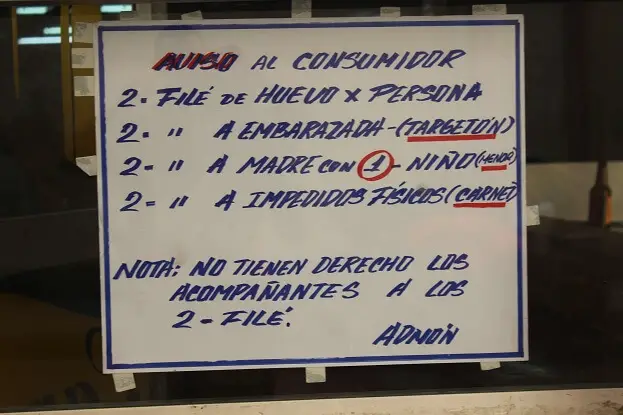
And finally, there are the ones that found some niche in tourism and do significantly better, the new middle-class. It was formed mainly after the citizens were allowed to sell and buy properties, open small businesses and form cooperatives. Most of them are Cubans of Spanish ancestry, the only ones that have access to passports, and who have relatives that can work and travel outside Cuba. Those relatives send the money to renovate the houses used as casas particulares, buy cars and open paladares. These are the ones with which a tourist will interact the most and also the ones that complain the most.
Random experiences and thoughts
- While wandering the streets of Havana, we’ve entered a bar where a band was playing. After one song, one of them came with a hat to collect money. We’ve heard that the usual tip was around 1CUC. We handed him 1CUC in coins of 50, 20 and 10. The guy refused to take the money, smiled and said “Nice try!” Are you really poor if you refuse to take the equivalent of 1 euro just because it doesn’t come in one coin but in 4?
- Our host in Cienfuegos told us he didn’t like people that kept asking him about how bad communism was. He said that he hasn’t known anything else, but for him it was good. They have their own house, get to rent two rooms. He took huge pride in their universal health and education systems. His daughters are at the university for which the state pays (school, accommodation, food) and in the end, the girls only have to go for one year wherever they are sent and work for the normal salary. He was perfectly aware that not everything was better elsewhere.
- Several times around the country we were asked 10 CUC for a 5-6 km ride and the guys wouldn’t take less than 8 CUC for anything in the world. Even in developed countries, the price does not exceed 1 euro/km. They were asking for at least 1.5 euro/km for a ride in a Lada nearly falling apart and fuel is not more expensive than in Europe. If you are really poor and you drive your own people for 0.25 euro for the same distance, why wouldn’t you be willing to drive tourists a distance of 5-6 km for less than half a month’s salary? Especially as you don’t give a receipt, which means that you won’t pay taxes.
- We stayed for 14 nights in Cuba. Everywhere we went, almost every house was a guesthouse and they were almost full, even in the shoulder season. The usual price for a night is 20-30 CUC, which is a good price for tourists. The locals complain a lot that they have to give a big part of it to the state. However, only 2 times was I requested a document and registered. If I wasn’t registered, they didn’t pay for my stay there. This means that a Cuban with a rental room makes more than a month’s salary in one day. Take into account that most of them have 2-3 rooms and that the utilities are subsidized by the state.
- Locals get to eat for far less than a tourist does. For 0.5 CUC they get a meal in local cafeterias. Indeed, it is usually low-quality food or sandwiches.
- Officially, everyone must have a job or they go to prison. However, we noticed lots of people just wandering around in the middle of a weekday. Locals spend a lot of time in bars and clubs. Yes, the entrance is free or almost free for them, but the buzz is not. A beer is around 1CUC. Would you give your entire salary for a month for 20 beers? I know I wouldn’t.
- At any time of the day, the wifi hotspots were full of Cubans using the Internet. For a tourist, it might not be expensive to pay 1CUC for 1 hour, but the locals pay the same price. Would you give your salary for a month on 20 hours of Internet? What about all the smartphones around.
- In Havana, we took a tip based tour. In most parts of the world, for a tip based tour, you pay the amount you want. This time, the guide told us from the beginning that he expects at least 5CUC from each of us. The amount was fair and we stayed. However, there were 8 of us, which means 40CUC, practically the salary for two months in two hours. You should consider yourself lucky to be paid that much in any country. The guide also told us that one night in one of the hotels right in the center of Havana costs 500CUC and that a Cuban had to gather money all his life in order to stay there for one night. The funny fact was that he said it as it would have been a piece of cake for any tourist, which is not true. Most of us couldn’t afford to stay there either. Cubans seem to believe that tourists are far richer than they really are.
- A tobacco farmer in Viñales complained about the state taking 90% of his harvest for pennies and selling it for a huge price afterward in government-owned stores. I’ve talked about him before, but he raised me some economic questions, too. He was selling one cigar for 4 CUC. Even if you bought more, you didn’t get a discount and he would not sell fewer than 5. He pretended that his cigars were similar to Montecristo 4. One Montecristo 4 costs less than 6 CUC in a shop. When the state takes 90% of your tobacco for almost nothing, and you pretend that you are poor, don’t you think you are a little greedy to ask for 4CUC/cigar?
Cuba – a country of contradictions
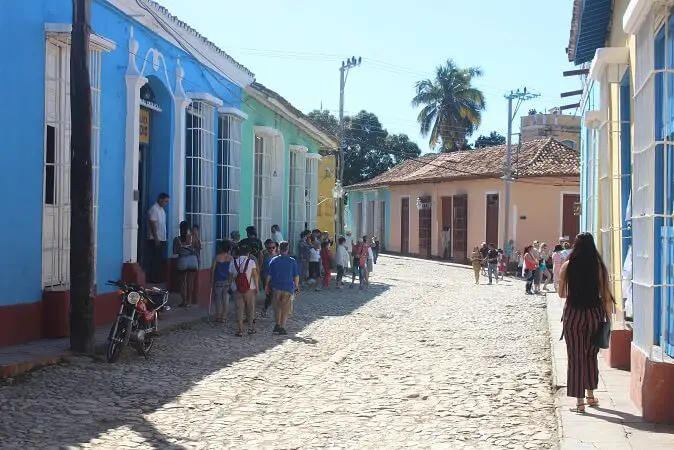
I’m not saying there are no poor people in Cuba. However, the ones that need it the most aren’t the ones that complain about the lack of money. Tourists don’t usually interact with them. Average Cubans might not get a lot of money as salary, but almost everything is already paid for or they get it for very little money. They might not be as rich as to travel outside the country, where you have to pay for everything as much as tourists pay in Cuba and the majority of them are not allowed to get outside the country either, but this is another story. At this moment, there are many poorer countries than Cuba. However, it is not in their favor not to complain about money. If they complain, they get more money.
Meanwhile, the pure existence of a middle-class leads to the costs of the food rising rapidly for all the citizens and the government is taking steps to reduce the social benefits. The most vulnerable are the elderly people who can’t survive on their pensions and lack the possibility to get involved into the touristic activities. Afro-Cubans don’t get the same chances as the ones with Spanish ancestors either. It gets more and more difficult to survive for some of them and communism doesn’t mean equality in Cuba anymore. Cuba seems to get closer and closer to the economic inequalities in other countries.
Travel With A Spin contains affiliate links. If you make a purchase through these links, I will earn a commission at no extra cost to you. Thanks for reading!
